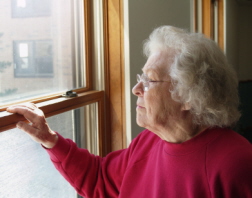Britney was the “chosen one.” The industry picked her as the next great “sensation” who would sweep the globe…and while that may have been great for a few minutes, it all turned very dark and ugly for the Pop Princess.
As with all great tragedy plot lines – you can’t hit those great highs, without plummeting to very dangerous lows. It’s the natural progression for all these “superstar” sagas.
And every high, and low of Britney’s roller-coaster life was captured on film, or in a photo, or ratted out by so-called “trusted confidants” who sold her secrets for a few bucks.
Well, Britney is all grown-up now, and sadly, she’s still plagued with all the chaos and hyper-focus.
There’s a new “tell-all” documentary out called “Framing Britney Spears.” It’s produced in part by the vultures at the New York Times, so you can only imagine what a hit job it is.
The documentary has been out for a couple of months now, but Britney hasn’t commented on it…Until recently.
And let me tell you, she’s devastated and hurt – she actually admitted that she cried over it – and she didn’t even watch the whole thing – just parts of it.
But she was so embarrassed and hurt at how she was portrayed, that she decided to speak out.
Much of her comments surround a video of her dancing to an Aerosmith song, that was used to mock her.
That seems to be the source of what hurt her most.
Here’s that video:
Britney’s comments on the documentary – that she did not participate in – are very raw, and as with everything “Britney-related,” her comments have that sad, child-like quality that tugs at your heartstrings.
Here’s a snapshot from Britney’s Instagram.

Britney Spears is finally breaking her silence about the widely-discussed documentary chronicling her life, Framing Britney Spears. Although the New York Times-produced project dropped nearly two months ago, Spears hasn’t even directly acknowledged its existence — until now. Last night, the pop star posted a message on Instagram sharing her emotional reaction to the documentary.
“I didn’t watch the documentary but from what I did see of it I was embarrassed by the light they put me in,” she wrote alongside a video showing her dancing to Aerosmith’s “Crazy,” per The Hollywood Reporter. “I cried for two weeks and well …. I still cry sometimes … I do what I can in my own spirituality with myself to try and keep my own joy … love … and happiness !!!!,” she continued. “Every day dancing brings me joy !!! I’m not here to be perfect … perfect is boring … I’m here to pass on kindness !!!!”
The singer also directly addressed themes included in Framing Britney Spears, specifically commenting on the media obsession surrounding her life and career. “My life has always been very speculated … watched … and judged,” she wrote, adding, “I have been exposed my whole life performing in front of people !!! It takes a lot of strength to TRUST the universe with your real vulnerability cause I’ve always been so judged… insulted… and embarrassed by the media… and I still am till this day !!!! As the world keeps on turning and life goes on we still remain so fragile and sensitive as people !!!”
The documentary doesn’t interview Britney or her immediate family, but it does include her longtime assistant, who I guess has sold her privacy out for a few bucks.
“Framing Britney Spears” director Samantha Stark admitted she and her team and the New York Times didn’t interview Britney, because they didn’t know if what she said would be “actually her” because of the conservatorship she’s under.
Well, hey, maybe just don’t do the documentary?
The media loves to do this – they love to lift people up, tear them down, and then talk all about it as if they weren’t actually the driving force behind all of it.
It’s a sick, twisted and evil cycle – and yet another reason why our
media needs to be burned down and rebuilt from the ground up.





























